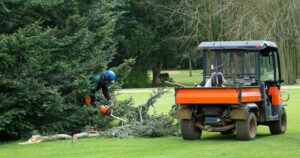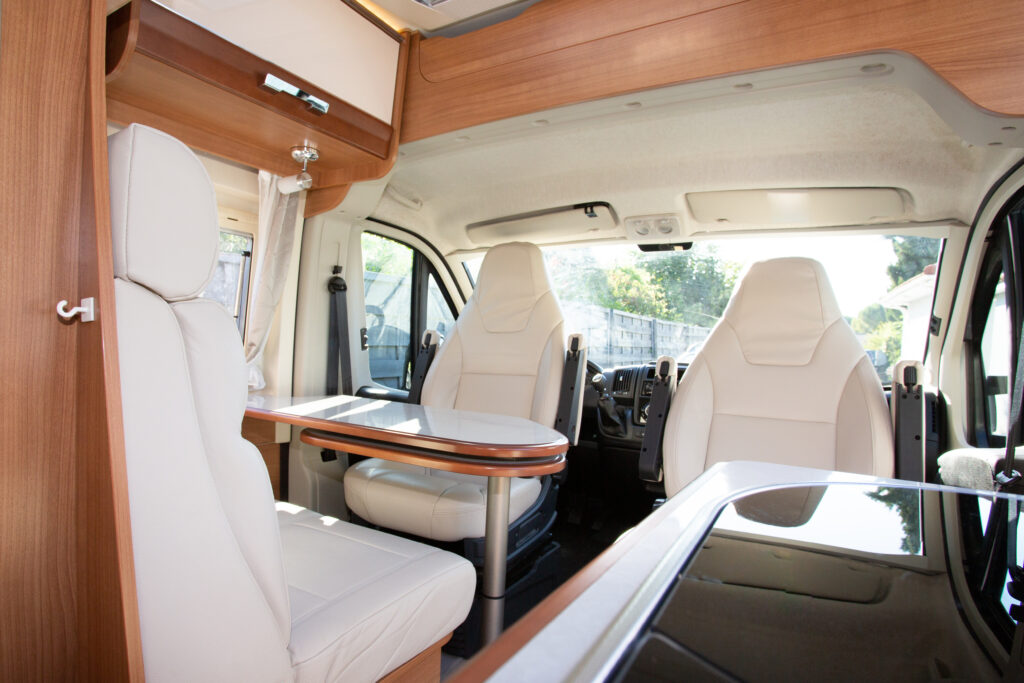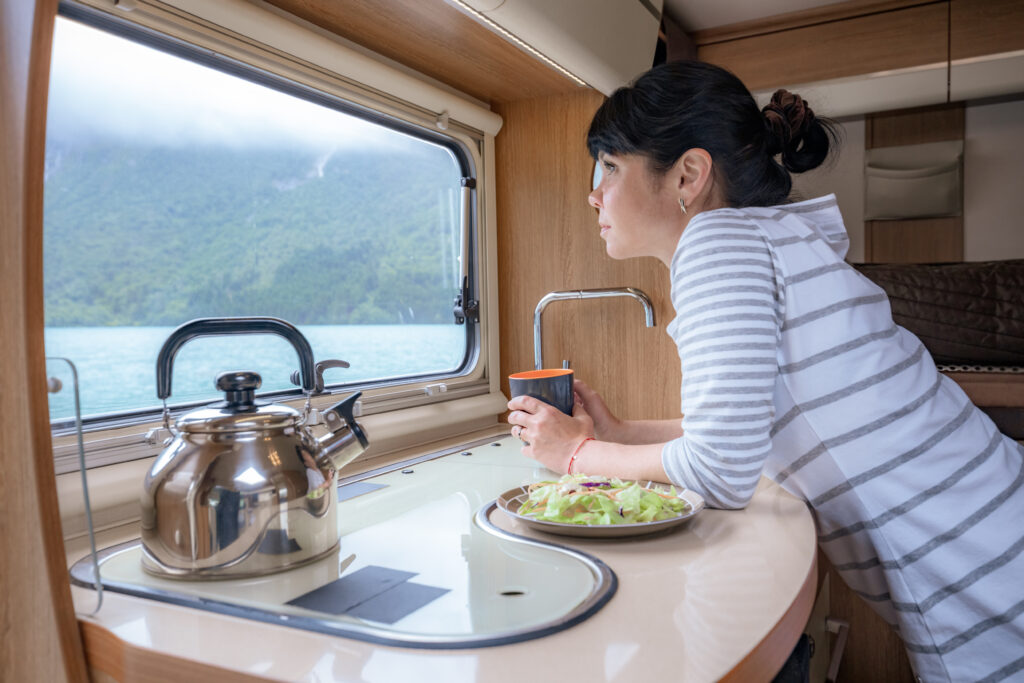
Ideas to Grow Your Landscaping Business in the Off-Season
Ideas to Grow Your Landscaping Business in the Off-Season For Landscape Contractors, if the sun is shining, you’re busy working! Spring and summer are likely
If you are a new RV owner, here are some tips and tricks to make your camping trip a breeze.
Use masking tape or a post it note to write down the exact height of your RV and stick it to your dashboard. This way, as you drive you can check clearance signs posted on overpasses. Before heading out, research your route to make sure it is RV friendly.

Use an empty parking lot to practice making wide turns, backing up, and using your side mirrors to see what is behind you.
All passengers should wear a seatbelt while the vehicle is in motion. Children should sit in designated front-facing travel seats. Check the area around the riding seats to make sure that in the event of an accident, appliances or furniture cannot fall onto the seats.

Bungee cords are essential for securing items while traveling so they do not shift or move. Use them to ensure cabinets stay shut and food items do not shift.
Talk with your local insurance agency about RV insurance. Your agent will discuss the make and model of your RV, and may ask about personal contents, modifications, or if it is mobile or tied down. Make sure to pack your insurance paperwork before you leave.
Put glow in the dark or reflective tape on your RV stairs to make them easier to see at night.

Research what the weather forecast is for the area you are travelling to. Check for construction updates as well to avoid delays.
Whiteboards are useful to have around in general, but if you are travelling from place to place, it’s an easy way to make sure critical information is easy to find. Secure a whiteboard in an easy to see spot, such as the front of the refrigerator or by the door. Write down the address of the campground you are staying at, campsite number, and any local emergency numbers. If you have a medical emergency, you can give your exact location when you call for help.
Let’s face it- your probably going to forget something when it comes to safely setting up and moving your RV. Take time to make an inspection list for things like tire pressure, securing awnings, and checking propane tanks.
Don’t forget to bring these items on your trip:
___________________________________________________________________
This article is for general informational purposes only and is not to be relied upon or used for any particular purpose. Cross Insurance shall not be held responsible in any way for, and specifically disclaims any liability arising out of or in any way connected to, reliance on or use of any of the information contained in this article. The information contained or referenced in this article is not intended to constitute and should not be considered legal, insurance, accounting or other professional advice, nor shall it serve as a substitute for the recipient obtaining such advice. The views expressed in this article are that of its author and do not necessarily represent the views of Cross Financial Corp. and its subsidiaries and affiliates (“Cross Insurance”) or Cross Insurance’s management or shareholders.

Ideas to Grow Your Landscaping Business in the Off-Season For Landscape Contractors, if the sun is shining, you’re busy working! Spring and summer are likely

When Should I Begin Thinking About Medicare? Disclaimer: This is an advertisement and solicitation. The Medicare eligibility age is typically age 65, however, you may

Starting a Business in Retirement You’ve retired from your career, but is it time for an encore? Maybe you’ve been thinking about a dream business